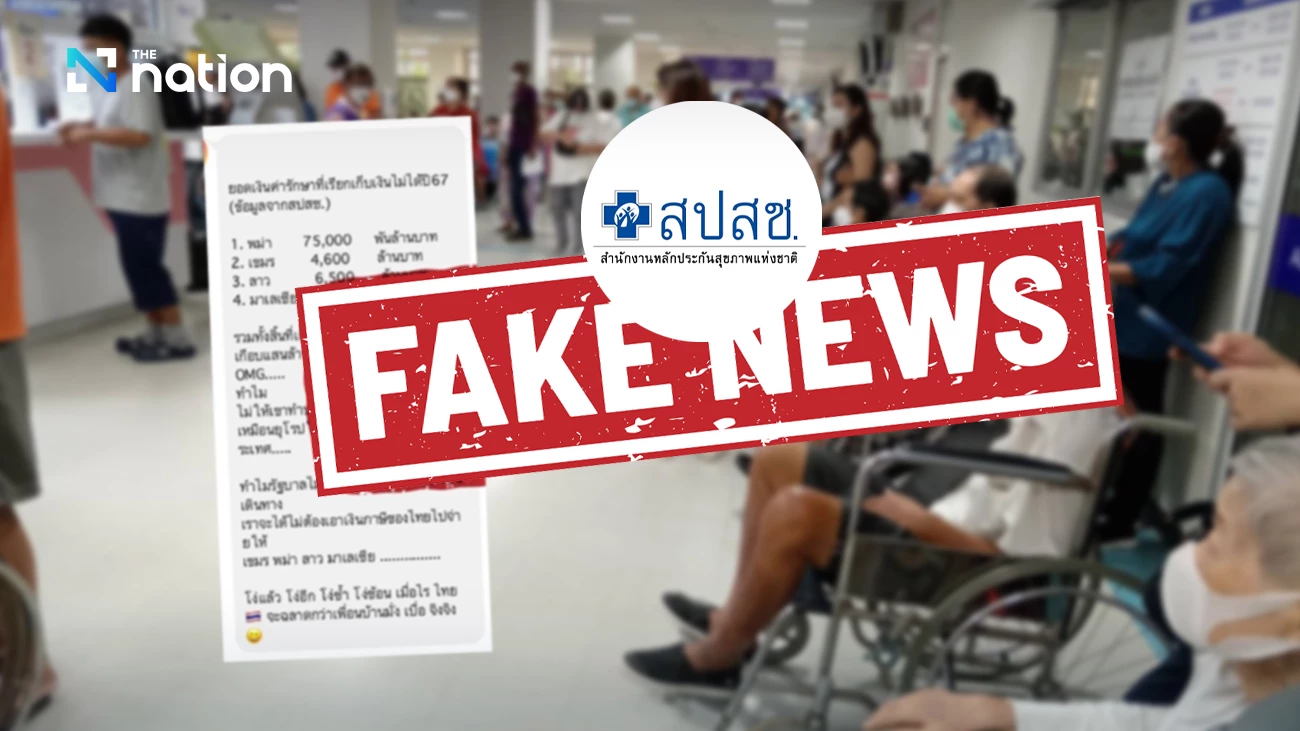Border Blazes: Thai-Cambodian Tensions Escalate Amidst Fake News, Land Disputes, and International Court Threats

The Thai-Cambodian border region continues to be a focal point of intense diplomatic tension, military observation, and significant humanitarian concerns, exacerbated by a pervasive spread of disinformation. Recent social media allegations claimed that Thailand was planning to assassinate Cambodian leaders Hun Sen and Hun Manet, accusations swiftly and firmly rejected by Thailand’s Ministry of Foreign Affairs. These allegations, reportedly made by Cambodia’s Minister of Information citing foreign intelligence sources, were deemed entirely unfounded and designed to defame Thailand, particularly during ongoing General Border Committee (GBC) discussions aimed at peaceful resolution. The Ministry of Foreign Affairs emphasized that spreading such false news undermines constructive dialogue.
Further complicating the information landscape, the National Health Security Office (NHSO) was compelled to refute social media claims asserting that nearly 100 billion baht was spent last year on medical care for citizens of neighboring countries, including 75 billion baht for Myanmar nationals, 4.6 billion baht for Cambodians, 6.5 billion baht for Laotians, and 6.2 billion baht for Malaysians, without any reimbursement from their respective governments. The NHSO’s refutation highlighted the challenge of combating prevalent false information.
Serious accusations of international law violations have also emerged within the border conflict. The Royal Thai Army (RTA) led an ASEAN Interim Observation Team (IOT) to the Thai-Cambodian border to monitor alleged breaches, specifically concerning the use of landmines by Cambodian troops. Visits by ASEAN envoys and representatives from countries that ratified the Ottawa Convention, which bans anti-personnel mines, to Si Sa Ket province reportedly uncovered evidence of landmines and allowed direct engagement with affected residents. Similarly, the International Committee of the Red Cross (ICRC) conducted an assessment of the humanitarian impact of cross-border attacks on civilians in Surin, Si Sa Ket, and Ubon Ratchathani provinces. The ICRC gathered facts and interviewed affected individuals, with its confidential findings to be submitted directly to both Thailand and Cambodia. Thailand’s government spokesman, Jirayu Houngsub, affirmed Thailand's dedication to strengthening humanitarian protection mechanisms.
Adding another layer to the dispute, Acting Prime Minister Phumtham Wechayachai discussed the potential for academics to submit a proposal to sue Cambodian Prime Minister Hun Manet and his father, Hun Sen, in the International Criminal Court (ICC) as alleged war criminals, or in Thai courts for causing deaths, injuries, and property damage to Thais. This consideration follows a resolution by the National Security Council (NSC) to pursue legal action.
A long-standing and significant point of contention revolves around Ban Nong Chan village in Sa Kaeo province. Thailand's government spokesman, Jirayu Houngsub, accused Cambodia of betraying Thai hospitality by establishing a community on Thai soil. Ban Nong Chan initially served as a temporary shelter for Cambodian refugees fleeing civil war in 1977. Over the decades, these refugees and their descendants expanded their settlements, reportedly refusing to return home and instead claiming the area as Cambodian sovereign land, despite Thailand’s consistent border demarcation claims. Thailand installed razor wire within its own boundaries to protect its territory from further encroachment and landmine attacks, maintaining that this measure did not violate the August 7 GBC agreement, which prohibited constructing structures outside territories. Cambodia, however, has exerted pressure on Thailand to dismantle these fences.
The issue of disinformation is a pervasive element of the conflict, with the Ministry of Digital Economy and Society (DES) reporting that eight of the top ten fake news items in a recent week were directly related to the Thai-Cambodian border conflict, underscoring the ongoing information warfare surrounding the situation.
Despite a 13-point ceasefire agreement reached during the August 7 GBC meeting in Malaysia, provocations, fake news, and various forms of intimidation continue to impact the region. Acting Prime Minister Phumtham Wechayachai also met with four US lawmakers who visited Thailand to observe regional developments and the Thai-Cambodian border conflict zone. Phumtham confirmed he raised the issue of Cambodian mine-laying activities with the US delegation, emphasizing the critical need for peaceful solutions based on truth rather than divisive propaganda. The US delegation was acknowledged as temporary observers, with further discussions anticipated for September 10.
The complex narrative highlights a volatile relationship, where calls for truth and peaceful dialogue often struggle against the backdrop of accusations, historical grievances, and the widespread influence of false information.
You may also like...
Mega-Fight Confirmed: Jake Paul and Gervonta Davis Set for Nov. 14 Showdown!

Boxing world reacts to the surprising announcement of Jake Paul facing WBA lightweight champion Gervonta “Tank” Davis in...
Ten Hag's Nightmare Start: Ex-Man Utd Boss 'On Brink of SACK' at Leverkusen After Just Two Games!

Erik ten Hag is reportedly facing the sack by Bayer Leverkusen after managing just one point from his opening two Bundes...
Divorce Never Looked So Good: Olivia Colman & Benedict Cumberbatch Shine in 'The Roses'

Jay Roach's dark comedy "The Roses," a new take on "The War of the Roses," explores the tumultuous marriage of Ivy and T...
Aronofsky's 'Caught Stealing': Austin Butler is a Relatable Loser in Epic NYC Chase

Darren Aronofsky's new crime drama "Caught Stealing" features Austin Butler as Hank Thompson, a New York bartender thrus...
Naira Marley Breaks Silence: Explosive New Details Emerge in Mohbad Investigation!

British-Nigerian singer Naira Marley has broken his silence on the controversial death of his former signee, Mohbad, rel...
African Music Giants Clash: Burna Boy & Davido Lead AFRIMA 2025 Nominations Race!

The 2025 All Africa Music Awards (AFRIMA) nominations have been announced, following a record 10,717 entries. Nigerian s...
Scandal Rocks Music World: Alexander Brothers Face Assault Allegations, Lawyers Deny Claims

Luxury real estate moguls Oren, Alon, and Tal Alexander face sex trafficking charges and accusations from over 60 victim...
Taylor and Travis: Engagement Buzz and Wedding Plans Rock the World!

Superstar couple Taylor Swift and Travis Kelce have officially announced their engagement, celebrating over a year of da...
